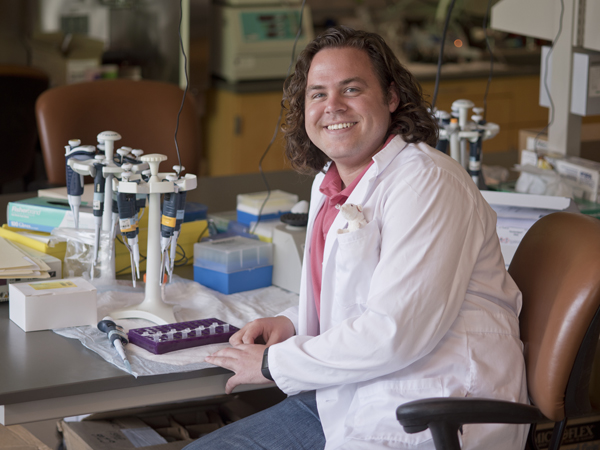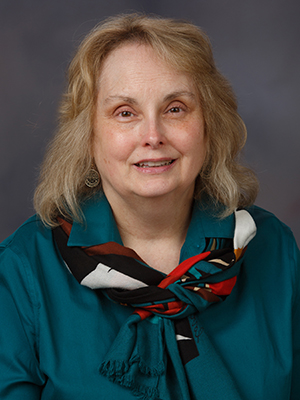#UMMCGrad16: 'Can’t Block This' grad from success

Published in News Stories on May 19, 2016
Growing up in Madison, Miss., John Henry Dasinger wanted to be a dentist, just like his sister and brother-in-law.
However, during his time as an undergraduate at the University of Connecticut, Dasinger admits he wasn't the best student in the biology department. He jokes he “majored in swimming” instead while competing for the Division I Huskies.
After graduation, someone told Dasinger to go work in a laboratory to become a more competitive candidate for dental school.
"It was the best advice I ever got,” Dasinger said. After a year in the lab, he shifted his career goal to biomedical research. On May 27, he will graduate from the School of Graduate Studies in the Health Sciences with a Ph.D. in physiology and biophysics.
And while UMMC does not have a swim team, Dasinger stays competitive by playing intramural sports. His favorite is volleyball, playing with two-time reigning intramural champions Can't Block This.

Since 2009, Dasinger has worked with Dr. Barbara Alexander, professor of physiology and biophysics. He spent two years as a technician, one year part-time while earning an M.S. in biomedical sciences and four years as a Ph.D. student.
“By the time John Henry started his Ph.D. he was ahead of the ballgame,” Alexander said. “Some students come into the lab without realizing that graduate school isn't like college or an eight-to-five job.”
The head start allowed Dasinger to focus on doing good science. His dissertation suggests that intrauterine growth restriction, leading to low birth weight, speeds up age-related increases in blood pressure in adult rats. It also points to the role of androgens, such as testosterone, in mediating these changes in females.
“The work is relevant to Mississippi because we have a higher incidence of low birth weight babies than the rest of the country,” Dasinger said. “We can identify separate populations to monitor more carefully for signs of hypertension.”
Dasinger won awards from the American Physiological Society and American Heart Association for his work. He also won SGSHS's Robert A. Mahaffey Memorial Award, recognizing the exceptional research potential of young investigators.
“Academic research is fascinating and it's challenging,” he said. “I like that science keeps changing and evolving.”
His long-term goal is to join the faculty at an academic medical center and possibly become a department administrator.
“John Henry is dedicated, he works hard and he perseveres,” Alexander said. “Those qualities are absolutely necessary to succeed in science.”
However, Dasinger advises newer graduate students to have fun as well.
“Don't just focus on research,” he said. “There is life outside of the lab.”
Dasinger takes his own advice. In addition to intramural volleyball, the former SGSHS Associated Student Body president and Student Alumni Representative also volunteered “in just about every education outreach activity,” such as Project REACH, PhUN Day and SURE.
“There's a unique camaraderie among the grad students here,” Dasinger said, also saying he has bonded particularly well with the rest of his lab. Alexander says he is a well-respected leader.
“John Henry's like a big brother to other students in the lab,” Alexander said. “He is a joy to work with and will be terribly missed.”
In June, Dasinger starts a postdoctoral fellowship at the Medical College of Wisconsin studying hypertension with Dr. Dave Mattson. Their physiology department shares several ties with UMMC, Dasinger says. Both programs are kidney-focused, which he likes. Mattson's mentor was Dr. Richard Roman, chair of pharmacology and toxicology at UMMC. Dr. Allen Cowley, chair of physiology at MCW, trained at UMMC with late physiology chair Dr. Arthur Guyton.
However, some things in Mississippi may be hard for Dasinger to find in Milwaukee.
“I'll miss my UMMC lab mates and my family, but also the warmth and sweet tea.”


